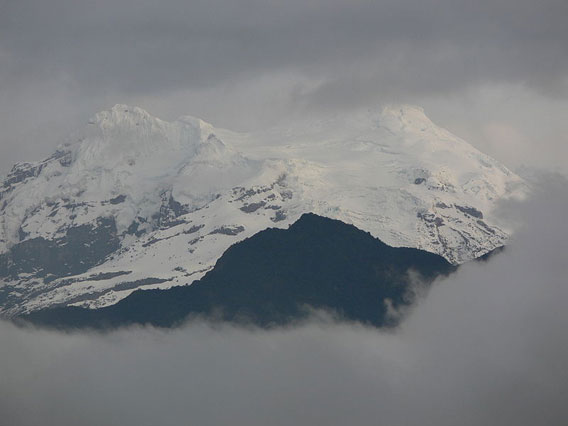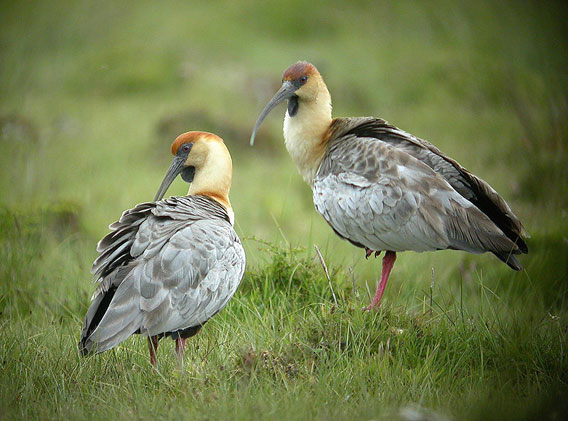
Antisana Volcano. Photo by: Stefan Weigal.
Conservation organizations and the Ecuadorian government have succeeded in securing over 250,000 acres (106,000 hectares) of cloud forest and grasslands surrounding the Antisana Volcano for protection. The area, long-used for cattle ranching, is home to Andean condors (Vultur gryphus), cougars (Puma concolor), Andean fox (Lycalopex culpaeus), silvery grebes (Podiceps occipitalis), black-faced ibis (Theristicus melanopis), spectacled bear (Tremarctos ornatus), and three species of endangered frogs. The protected area stretches from 3,900 feet (1,188 meters) to 18,700 feet (5,699 meters) above sea level.
“The contiguous 264,382 acre land purchase around Volcan Antisana represents one of the greatest conservation successes ever in the Andes,” said Robert Ridgely, executive director of World Land Trust-US, which helped secure the properties along with local organization Fundación Jocotoco and the Ecuadorian government.
Although the region was declared a reserve in 1993, 80 percent of the land had not been purchased at the time from private land owners. The next 18 years were spent securing private land for protection.
“Due to a long history of intensive grazing, Antisana’s ecosystems are significantly degraded, and this affects an important part of the watershed that supplies water to much of Quito. Nonetheless Antisana has outstanding biodiversity values which make it amply worthy of protection,” WLT writes in a blog, adding that “tropical Andean cloud forests such as are found at Antisana are considered the world’s number one biodiversity priority, due to their species richness, endemism and degree of risk; they harbor multitudes of rare and endangered species. ”

Black-faced ibises. Photo by: Frank Vassen.
Related articles
Sierra Leone creates rainforest park
(12/03/2011) Sierra Leone, one of Africa’s poorest countries, today announced the establishment of Gola Rainforest National Park (GRNP), an area of forest home to chimpanzees, a key population of pygmy hippo, and hundreds of bird species, reports the Royal Society for the Protection of Birds (RSPB).
Dole abandons banana plantation in National Park

(11/21/2011) After a threat of lawsuit, Dole Inc. has abandoned a banana plantation in Somawathiya National Park in Sri Lanka. The US-based food giant had partnered with a local company, Letsgrow Ltd, to grow bananas for export markets at the bank of the Mahaweli River, but Dole ran into trouble when local conservation organizations pointed out they were illegally destroying forest and planting crops in Somawathiya National Park, home to elephants and many other imperiled species. Local group, Environmental Foundation Limited (EFL), obtained past and current satellite images to prove that the company was operation within the park.
Bolivian road project through Amazon reserve canceled
(10/23/2011) Following a violent crackdown on protestors which deeply embarrassed the Bolivian government, president Evo Morales has thrown-out plans to build a road through an indigenous reserve, reports the BBC. Protestors marched 310 miles (498 kilometers) from the Amazon to La Paz to show their opposition to the road, saying that the project would destroy vast areas of biodiverse rainforest and open up their land to illegal settlers.







